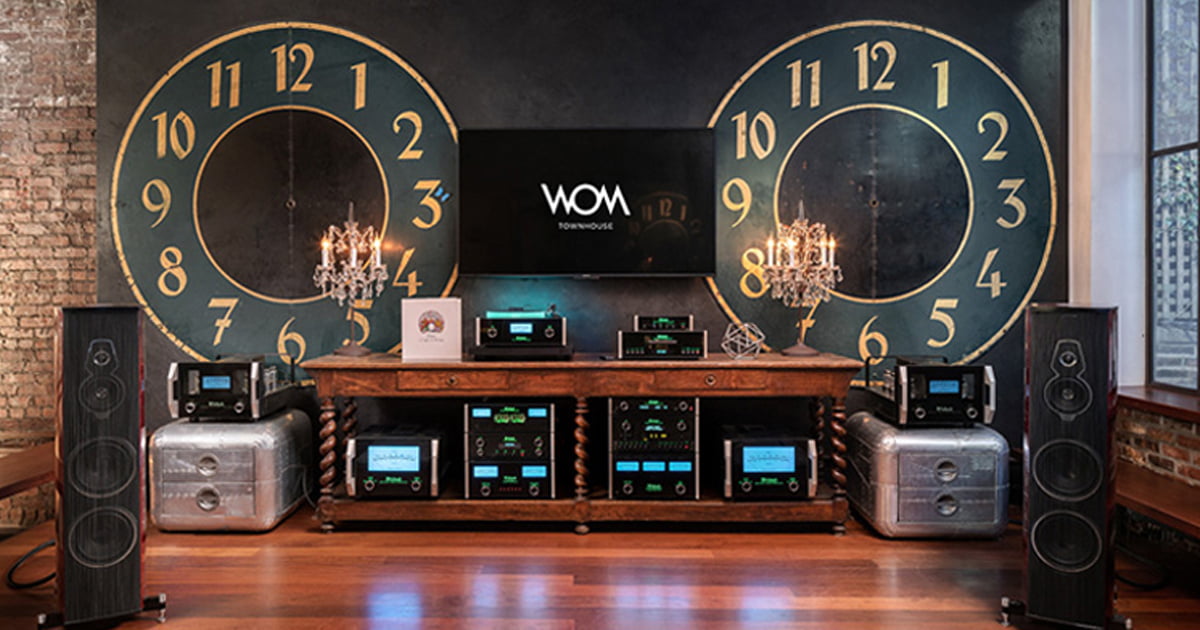It’s the time of year for saving money!
 Webster’s dictionary defines the outdated term “fussbudget” as “one who fusses or is fussy especially about trifles.” And one must go on to define “trifles” as : “something of little value, substance, or importance.”
Webster’s dictionary defines the outdated term “fussbudget” as “one who fusses or is fussy especially about trifles.” And one must go on to define “trifles” as : “something of little value, substance, or importance.”
Audiophiles like good sound, and that is decidedly not a trifle nor is it being fussy. Most of us like our good sound unencumbered by sonic anomalies which get in the way of the music as much as possible, from surface noise on a vinyl record jitter and other digital artifacts on a stream.
However… and you knew there was going to be a “however” … there is a point in the music collecting process where one throws up one’s arms in the air, rolls one’s eyes and exudes a resonant “whatever!” before laying down cash for a particular, highly desired purchase. At the end of the day, it’s about the music and we try to find the best sounding version we can find within our budgets at a given time.

Over the past several years I’ve been watching (and enjoying) the vinyl renaissance flowering and maintaining its bloom for the most part. Yet, I’ve noticed some curious phenomena emerging.
The first bit of weirdness is an explosion of high priced reissues of dubious origin — often “grey market” product made overseas where copyrights may have expired and thus enabling obscure entities to market their own versions of classic recordings which were formally on major labels and influential independents. I’ve been seeing these things showing up in physical “brick and mortar” stores as well as online for some fairly major titles/artists.
Linked to that — perhaps — is how the used record market has changed. Now, a big part of the vinyl resurgence has revolved around young people getting into the format not only because it is the hip thing to do, but because they got the message that their favorite music would probably sound better than their low bit rate MP3s. There is a somewhat more advanced level of new collector out there actively seeking “OGs” as they call them in Internet parlance these days — what many of us older collectors used to call simply an “original” pressing.” Check this little thread here which I found that underscores this confusion…
 Curiously, it seems that some (many?) young collectors don’t seem to want any used products that show much in the way of wear and tear. Certain customers appear to be so hung up on this that they will seemingly opt for a brand new version of an album from any era even if it doesn’t necessarily sound the best or is a real “OG” as they say. I have heard this from some store owners and also from other shoppers I’ve chatted with over the years… And I’ve seen it in the product filling the store shelves in many outlets…
Curiously, it seems that some (many?) young collectors don’t seem to want any used products that show much in the way of wear and tear. Certain customers appear to be so hung up on this that they will seemingly opt for a brand new version of an album from any era even if it doesn’t necessarily sound the best or is a real “OG” as they say. I have heard this from some store owners and also from other shoppers I’ve chatted with over the years… And I’ve seen it in the product filling the store shelves in many outlets…
Its a thing, as they say…
I am making a leap here, admittedly, but I suspect that they’d rather buy one of those aforementioned somewhat pricey questionable reissues of Dave Brubeck’s legendary Time Out album than seek out an OG “six-eye” Columbia Records pressing (which can often be found quite reasonably if you look a little bit, more on that in a moment). Here are links to some of these odd releases of Brubeck’s Time Out, also here and here for example.
I’ve recently found knock offs of classic titles like John Coltrane’s Blue Train as well as records by Mingus and many others out there on store shelves. I remember also seeing some questionable Beach Boys and Dylan releases out there in the racks.
 So, in essence folks, buying spiffy-looking, expensive 180-gram new pressings — which may not really sound that good — only to play them on a budget line record player or even a vintage single speaker industrial “grade school” record player purchased at a thrift shop doesn’t make a whole lot of sense. And regarding the latter comment about the school record player, that is a for real phenomenon… those Monaural boxes which were designed for playing records in elementary schools back in the 1960s and 70s end up in people’s homes as a primary record player. I am not making this up – – I have seen these things being used out there!
So, in essence folks, buying spiffy-looking, expensive 180-gram new pressings — which may not really sound that good — only to play them on a budget line record player or even a vintage single speaker industrial “grade school” record player purchased at a thrift shop doesn’t make a whole lot of sense. And regarding the latter comment about the school record player, that is a for real phenomenon… those Monaural boxes which were designed for playing records in elementary schools back in the 1960s and 70s end up in people’s homes as a primary record player. I am not making this up – – I have seen these things being used out there!
Now, I like a new “thing” as much as the next guy – – there’s nothing quite like the thrill of cracking open a brand new record or a new Blu-ray Disc, putting it on and enjoying that moment of pristine bliss.

I get it.
But if you’re going to spend $20 – $50 on some weird pressing of undisclosed origin, when a much better sounding original pressing may be available at the same price or less used, it seems to me that there is a bit of a disconnect happening somewhere along the way. Wouldn’t you rather have an genuine “OG” of Brubeck’s Time Out which you can find fairly easily at a thrift shop or record store bargain bin for under five dollars — perhaps with a inaudible but visually imperfect scuff on the surface of the record — than a $25 faked reissue with the wrong cover art and sound that is possibly taken from a low resolution digital file?
Wouldn’t you want your copy of Coltrane’s Blue Train to be as close to the original look, feel and sound rather than some odd quazi-pirate release that sort of looks like the album but isn’t really the real deal? Heck, you can find a new legitimate copy of Blue Train in its original form for a pretty reasonable price (you don’t necessarily have to spent hundreds of dollars on a rare first pressing at this stage of building your collection but try to get the real thing at least!).

Fortunately many major labels are pushing out legitimate reissues and archival releases these days. Higher quality boutique editions are coming out from labels such as Craft Recordings, Omnivore Recordings, and Run Out Groove (that latter of which involves its followers on voting for what release gets made each month!). Universal Music Group has been stepping up its efforts in some reissues I’ve come across. And of course Mobile Fidelity and new labels like the non-for-profit Resonance Records are pushing the envelope on high quality vinyl releases, both for vintage reissues and previously unreleased archival recordings, I have reviewed a number of releases from these labels here on Audiophilereview so check around here to read up on those editions.
So that is encouraging…
But still, I think there is a need for a new generation to learn a bit more about what they are buying so they don’t get ripped off. And perhaps reset their priorities as to what is most important at the end of the day. Stay tuned for more on this topic soon here on Audiophile Review…










From the title of your post, I thought you were going to take a shot at Michael Frehmer. Obviously, I was wrong. And while I think you are right about your conclusions, a “six eye” isn’t worth a dime if it’s all scratched up.
Well, I wouldn’t say they are not worth a dime … it just depends on who the customer. is and their needs/expectations.. for someone starting out on a budget, a few ticks and pops can easily fall into the background of the listening experience… I have some very scratched but exceedingly rare records which sound remarkable when played with a Mono cartridge… many times much of the surface noise disappears or is at least minimized… So it just depends on one’s priorities …. And for the record I have the utmost of respect for Michael Fremer who has done enormous good for the hobby and the industry….
My problem with the vinyl resurgence is the proliferation of used vinyl sellers that abuse the rating system. I am so tired of buying “near mint” or “VG++” recordings with visible scratches and loud pops and clicks on both sides. The feeling seems to be that a high rating sells records and most people won’t send them back. I got so ticked off at one seller that I broke the POS record in half and threw it out.